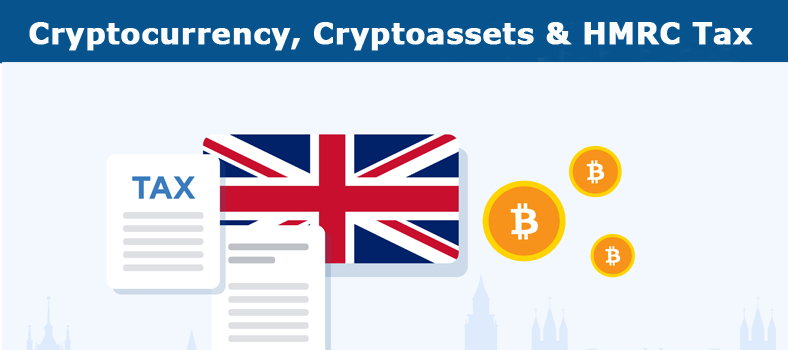
With the whole world going digital in terms of buying, selling or making payments, there was this long yearning for digital currency. By digital currency, we mean cryptocurrency or crypto assets, which is finding acceptance across the world rapidly. It can be used to pay for products and services. It uses an online ledger with solid cryptography to safeguard online transactions.
What is the meaning of cryptocurrency?
The term ‘cryptocurrency’ is made of ‘crypto’ (meaning ‘hidden’) and ‘currency’ (meaning ‘money’). It runs on secure technology, protecting the owner’s identity and transactions.
In the UK, the HMRC (Her Majesty’s Revenue and Customs) describes cryptocurrency or crypto assets as the cryptographically secure digital representations of value or the contractual rights that can be transferred, stored and traded electronically.
How different is cryptocurrency from cash?
Unlike cash, cryptocurrency exists in electronic format and uses a peer-to-peer system. Unfortunately, no government or central bank is involved in its management, making it a risky proposition if something goes wrong.
Despite the high risk, many people find it appealing to own cryptocurrencies or crypto assets. The transactions are amongst individuals. The value is determined at the sum a buyer is ready to pay.
What are the types of cryptocurrencies?
Presently, there are many types of cryptocurrencies or crypto assets available in the world. These include XRP, Tether, Ripple, Bitcoin, Litecoin and Ethereum. Amongst all, Bitcoin is the biggest cryptocurrency. It has a market capitalisation of approximately $600 billion. Bitcoin is followed by Ethereum. The top five cryptocurrencies account for over 80% of the market. Remarkably, cryptocurrency’s value changes drastically on a day-to-day basis.
What is the FCA’s stand on cryptocurrency?
The Financial Conduct Authority (FCA) has recognised issues faced by investors in understanding the risks involved in investing in cryptocurrency, besides growing financial crime and other financial risks.
What was the HMRC’s perception of cryptocurrencies?
Ever since the cryptocurrencies started becoming popular, around the year 2014, the HMRC regarded it as a ‘speculative investment’ or gamble and so had no taxation rules to control it. What’s more, cryptocurrency was also not used or accepted as widely as it is today.
What does the HMRC’s rule manual say on cryptocurrencies?
Currently, cryptocurrency is being accepted by some of the significant institutions, including accounting companies, for products and services. Seeing this, the HMRC has modified its rules and published a Cryptoassets Manual that clearly states the tax structure of cryptoassets.
As per the HMRC, buying or selling cryptocurrency (generally via tokens) means an investment activity rather than a business of trading in tokens. In such types of cases, if a person invests in tokens, they will be liable to pay Capital Gains Tax.
What is the classification of cryptoassets, according to the HMRC?
As per the published guidelines by the HMRC, cryptoassets are divided into four broad categories:
Exchange Tokens: These tokens are being used as a payment mode. The most popular token is Bitcoin.
Utility Tokens: These tokens enable the holder access to goods and services on a platform, typically Distributed Ledger Technology (DLT).
Security Tokens: These tokens come with specific interests or rights in a business, like ownership or repayment of a particular amount or entitlement to a shareholding in profits.
Stablecoins: These coins refer to cryptoassets, pegged to the value of other assets or fiat money.
What to do when the HMRC asks about your cryptoassets?
Whenever the HMRC begins an investigation of either your tax liabilities or your business, the officials will ask you to complete and submit the statement of Assets and Liabilities. Your statement should have all the assets and liabilities of considerable value. This may include those assets and liabilities:
- Held by dependent or minor children
- Held by your nominees
- Held otherwise on your behalf
- Held outside of the United Kingdom
Whom to consult for filing the statement?
This statement is quite important, and so you should always consult an experienced accountant or a professional tax consultant and seek their help to file it. Eventually, the statement reflects your details, and so it should be completed and filed responsibly. The statement is used to determine the terms of any settlement with the HMRC.
Notably, now features a particular question about the holding of any cryptoassets by the taxpayer. This approach emphasises the HMRC’s purpose to find out the sources of the wealth a person might have. Here is the relevant section of the form for your reference.
The conclusion
Just remember, if the HMRC seeks information about all your assets, including cryptoassets, you must file your statement with complete details after thorough consultation with your accountant or tax consultant. These professionals can assist you in dealing with the HMRC taxation on cryptocurrency or cryptoassets as per rules, thereby preventing you from legalities.

